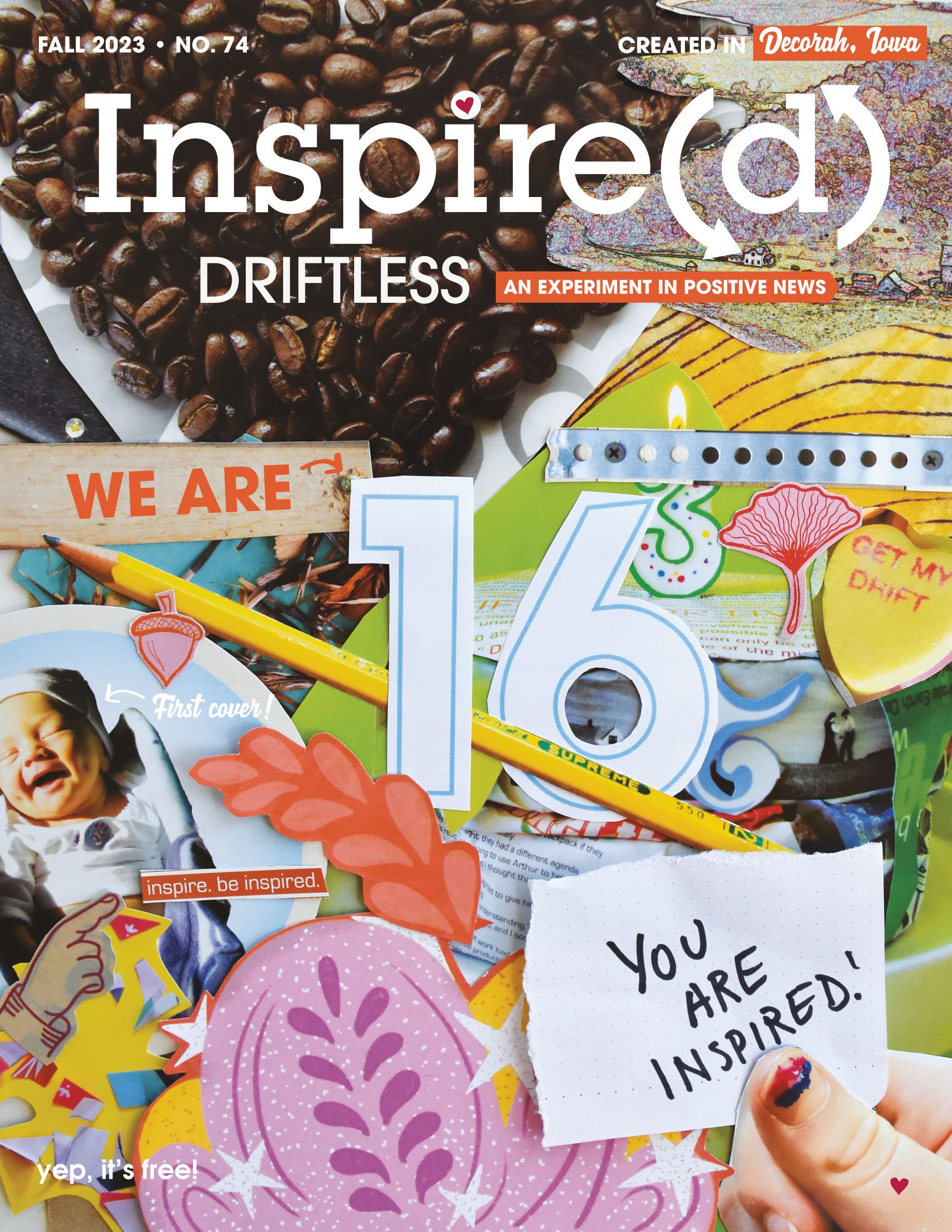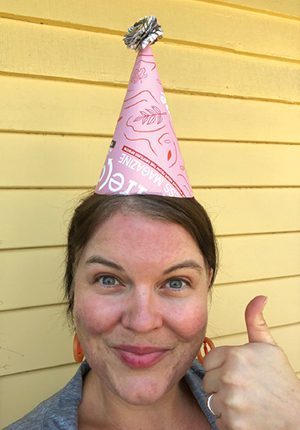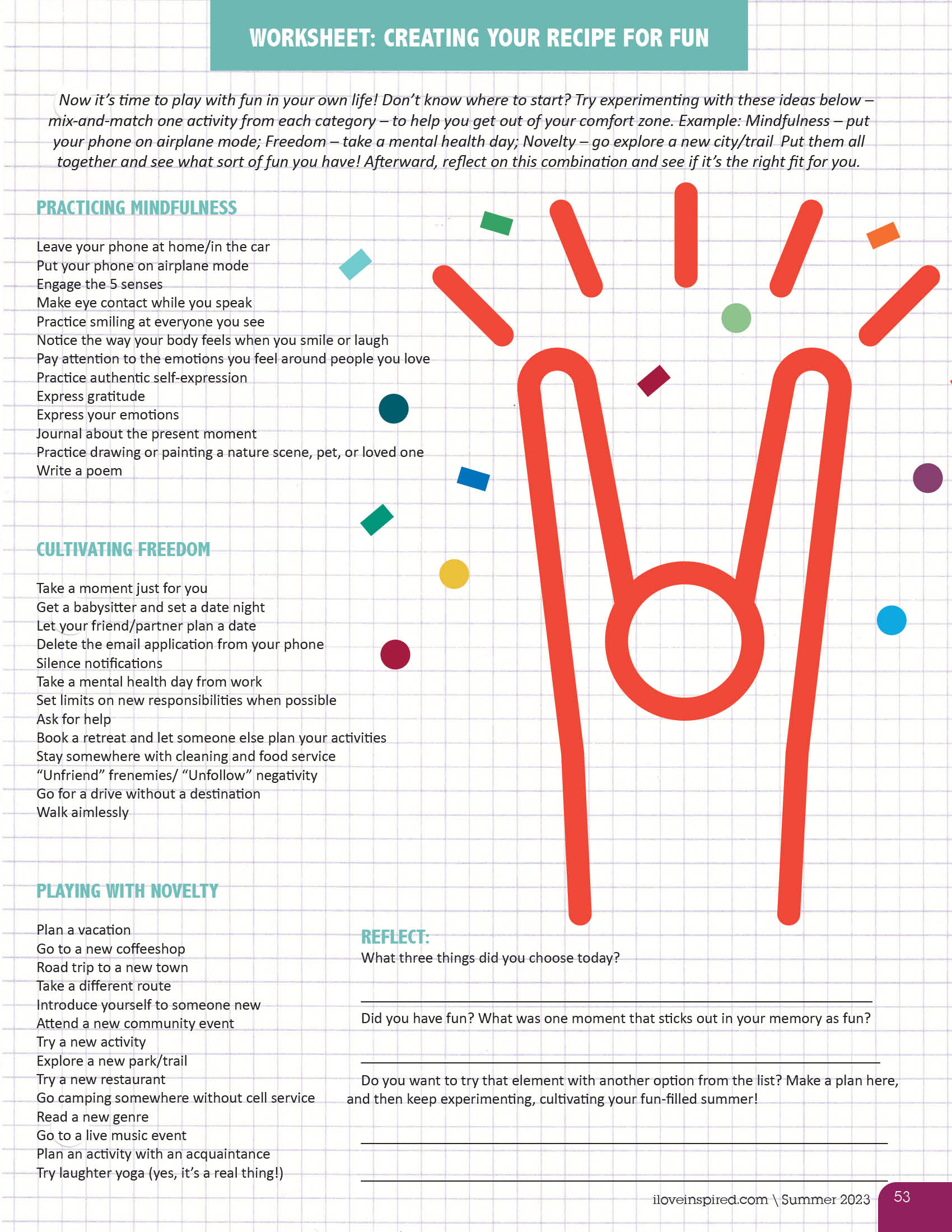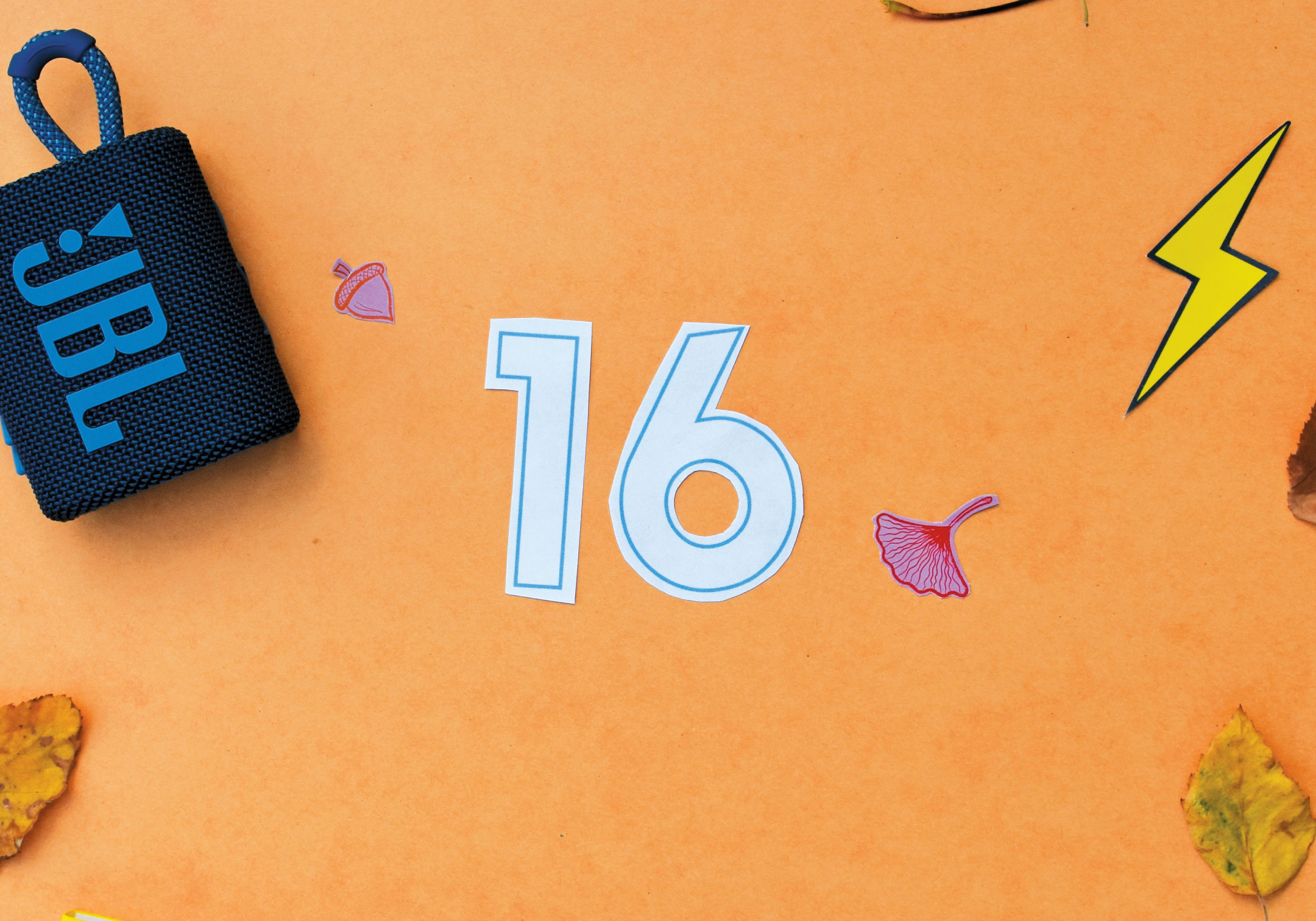
Finding inspiration is, obviously, one of the main missions of Inspire(d) Magazine. We want to tell inspiring, relatable stories of our neighbors doing good things out there, so readers might feel inspired to do the same. (Inspire > Be Inspired = Inspire(d)!)
But sometimes, finding inspiration to move forward feels impossible.
For me, this Fall 2023 Inspire(d) was one of the hardest ones I’ve ever made.
On August 1, I got the sad news that one of my favorite friends from college took his own life. Chris was a shining light to everyone who knew him – funny, smart, a good listener – but he struggled with mental health and finding a path forward. And ultimately, he didn’t see one.
It was hard to do anything for quite a while after that day. Just walking around the block felt heavy. But I knew I was at least taking some (literal) steps. I thought about being a shining light for others, just as Chris was with his friends, colleagues, and acquaintances.
That got me going. That idea of spreading light was the thing that inspired me to take the next step, and then the next. Because not only did I see the light in Chris, I see it in myself, I see it in the people I love… and I see it in all of you. You are inspired. We could not make this magazine without you, out there, living this life in a way that inspires others around you.
For the days when you’re not feeling quite so light-filled, there are some small (and bigger) things you can try in order to seek that spark of inspiration, and we dedicate the mental health section of this magazine to this goal. I put together 16 inspiration ideas in honor of Inspire(d)’s 16th birthday, and our mental health writer, Olivia Lynn Schnur, dives into some of the more psychological aspects of finding inspiration, and reminds us that sometimes we might need a little help as well, and that’s the time to seek out a mental health counselor. Or call 988. The 988 Lifeline is a national network of local crisis centers that provides free and confidential emotional support to people in suicidal crisis or emotional distress 24 hours a day, seven days a week in the United States.
You are important. This life is worth living. You are inspired. I hope you take the first step to finding inspiration – today. When you do, you’ll bring light not only to yourself, but to those around you. That is the magic of inspiration.
Below, find 16 big and little ideas for finding inspiration, and thank you so much for reading, friends. I am grateful.
XOXO – Aryn
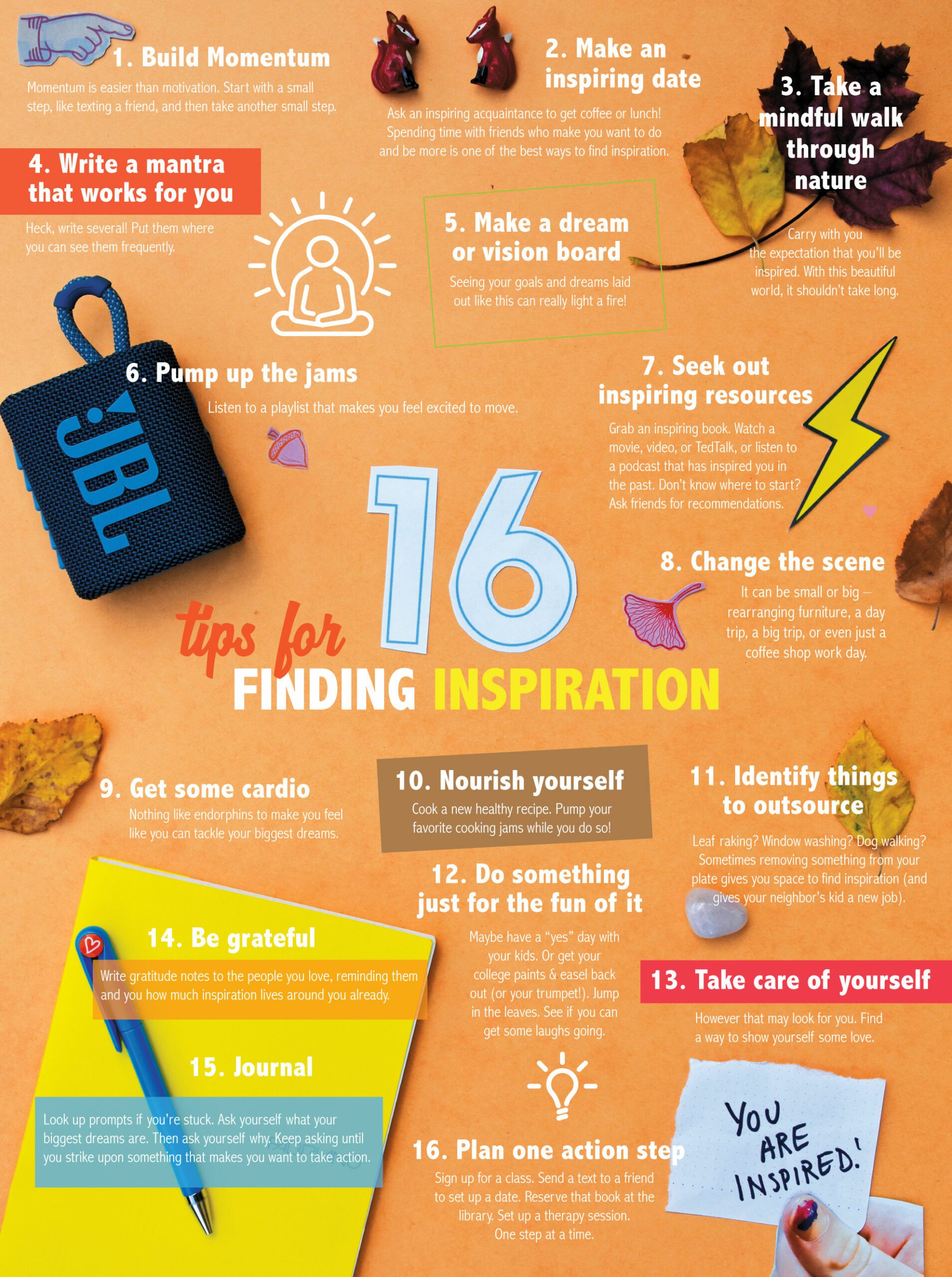
16 Tips for Finding Inspiration
In case you can’t read it all in the graphic above, here it is in text form. In honor of Inspire(d) Magazine’s 16th birthday, here are 16 tips for finding inspiration:
1. Build Momentum
Momentum is easier than motivation. Start with a small step, like texting a friend, and then take another small step.
2. Make an inspiring date
Ask an inspiring acquaintance to get coffee or lunch! Spending time with friends who make you want to do and be more is one of the best ways to find inspiration.
3. Take a mindful walk through nature
Carry with you the expectation that you’ll be inspired. With this beautiful world, it shouldn’t take long.
4. Write a mantra that works for you
Heck, write several! Put them where you can see them frequently.
5. Make a dream or vision board
Seeing your goals and dreams laid out like this can really light a fire!
6. Pump up the jams
Listen to a playlist that makes you feel excited to move.
7. Seek out inspiring resources
Grab an inspiring book. Watch a movie, video, or TedTalk, or listen to a podcast that has inspired you in the past. Don’t know where to start? Ask friends for recommendations.
8. Change the scene
It can be small or big – rearranging furniture in your house, a day trip, a big trip, or even just a coffee shop work day.
9. Get some cardio
Nothing like endorphins to make you feel like you can tackle your biggest dreams.
10. Nourish yourself
Cook a new healthy recipe. Pump your favorite cooking jams while you do so!
11. Identify things to outsource
Leaf raking? Window washing? Dog walking? Sometimes removing something from your plate gives you space to find inspiration (and gives your neighbor’s kid a new job).
12. Do something just for the fun of it
Maybe have a “yes” day with your kids. Or get your college paint and easel back out (or your
trumpet!). Jump in the leaves. See if you can get some laughs going.
13. Take care of yourself
However that may look for you. Find a way to show yourself some love.
14. Be grateful
Write gratitude notes to the people you love, reminding them and you how much inspiration lives around you already.
15. Journal
Look up prompts if you’re stuck. Ask yourself what your biggest dreams are. Then ask yourself why. Keep asking until you strike upon something that makes you want to take action.
16. Plan one action step
Sign up for a class. Send a text to a friend to set up a date. Reserve that book at the library. Set up a therapy session. One step at a time.





